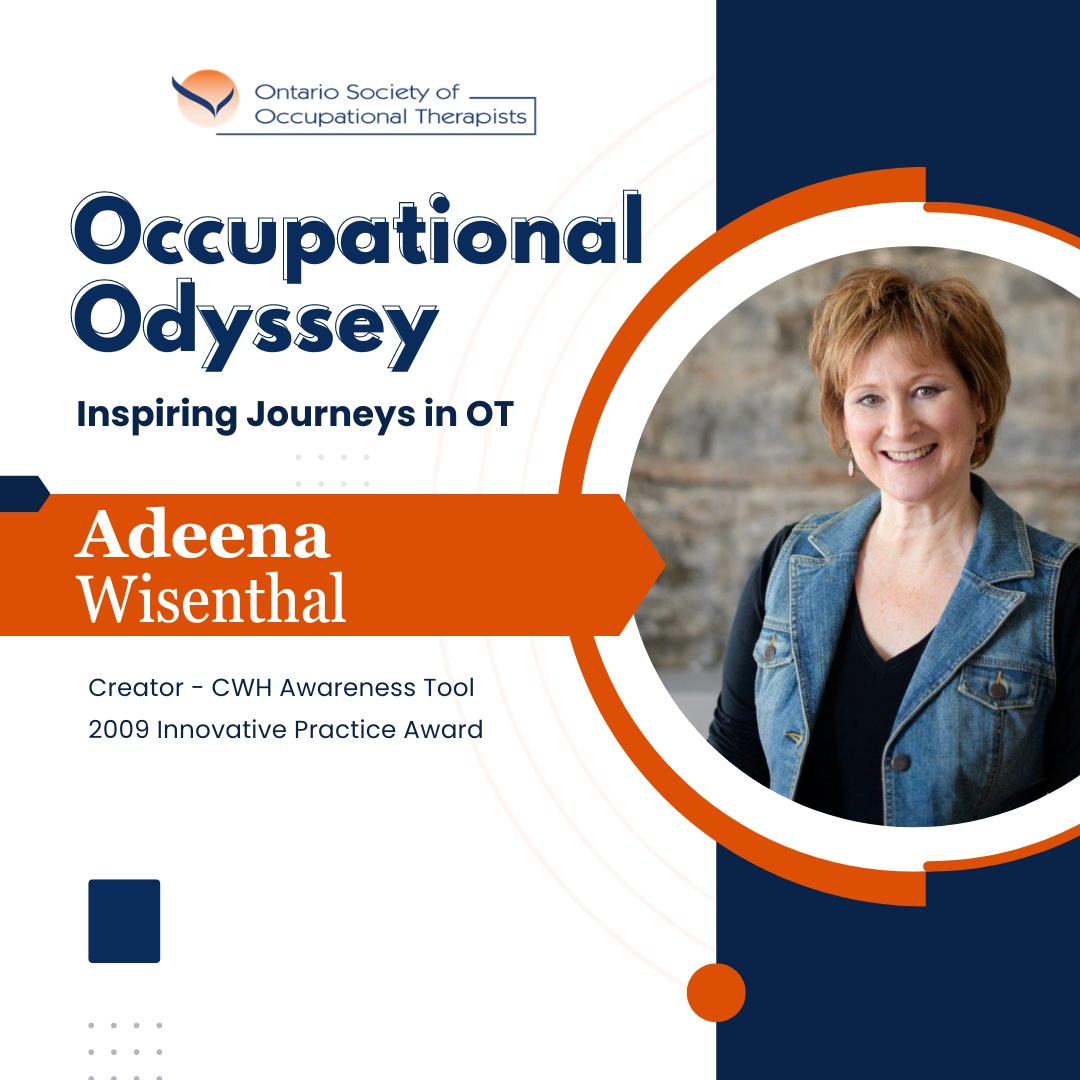Adeena Wisenthal

My training in occupational therapy was obtained at McGill University (Montreal, Quebec) where I received a BSc. (Occupational Therapy). I launched my career specializing in mental health in the hospital setting. Initially, I worked at the Jewish General Hospital, Adult Psychiatry ward, followed by a position at the hospital’s outpatient vocational rehabilitation program. I pivoted to working with children and assumed an occupational therapist role at the Montreal Children’s Hospital, Inpatient Psychiatry ward. I took time off from my career to have my children, during which I completed a Master's in Education (Counselling) degree at McGill University, providing me with knowledge and skills that complemented my occupational therapy training and experience.
I look back at the start of my career in Montreal fondly; however, I must say that my career as an occupational therapist catapulted when I moved to Ottawa, Ontario and joined OSOT as a member. Soon after relocating, I was approached by an insurance Rehabilitation Consultant who had identified a need in the disability sector for return-to-work (RTW) preparation following a mental health disability. She recognized that an occupational therapist would be ideal to address these RTW needs and challenged me to narrow this gap in healthcare.
I accepted the challenge and embarked on an analysis of existing RTW interventions as a first step. My reading led me to work hardening which is an evidence-based occupational therapy intervention for RTW preparation. While the application of work hardening was not restricted to a particular client population, work hardening had been largely focused on people with physical injuries. The applicability of work hardening to the mental health domain and, particularly to people with depression, was largely neglected. This is where I focused my attention as I understood the underlying principles of work hardening could apply to people off work due to mental health conditions.
The specific RTW preparation intervention that I pioneered and developed in 2000 was born out of this treatment need. It is called cognitive work hardening (CWH) and has evolved over the 24 years since first applying it in my clinical practice. I am proud to say that CWH (coined bridge2work™) has helped hundreds of employees return to work following a mental health-related disability leave. I am also proud to note that I received the 2009 Innovative Practice Award from the CAOT.
My clinical success with CWH led me to study the intervention rigorously through my doctoral research at Queen’s University (Kingston, Ontario). Quantitative and qualitative findings from my research supported the role that CWH plays in RTW following an episode of depression. These findings further support the evidence base already available substantiating work hardening as a valuable tool in the occupational therapists’ toolkit.
While I work as a clinician through my private practice, ERGO-Wise®, I have been committed to knowledge transfer (KT) of CWH through journal papers, podcasts, and workshops. I created a CWH Awareness Tool and a CWH resource webpage for interested occupational therapists (www.cwhconnect.com ). I rolled out a CWH training program in 2021 which has trained international occupational therapists. My most recent KT activity is a training manual for occupational therapists with a launch date of April 2024. It is entitled “Cognitive Work Hardening: Building a Bridge Back to Work.”
In addition to my direct occupational therapy work, I have enjoyed participating on the OSOT Workplace Mental Health Team and contributing to the profession through OSOT’s different endeavours.